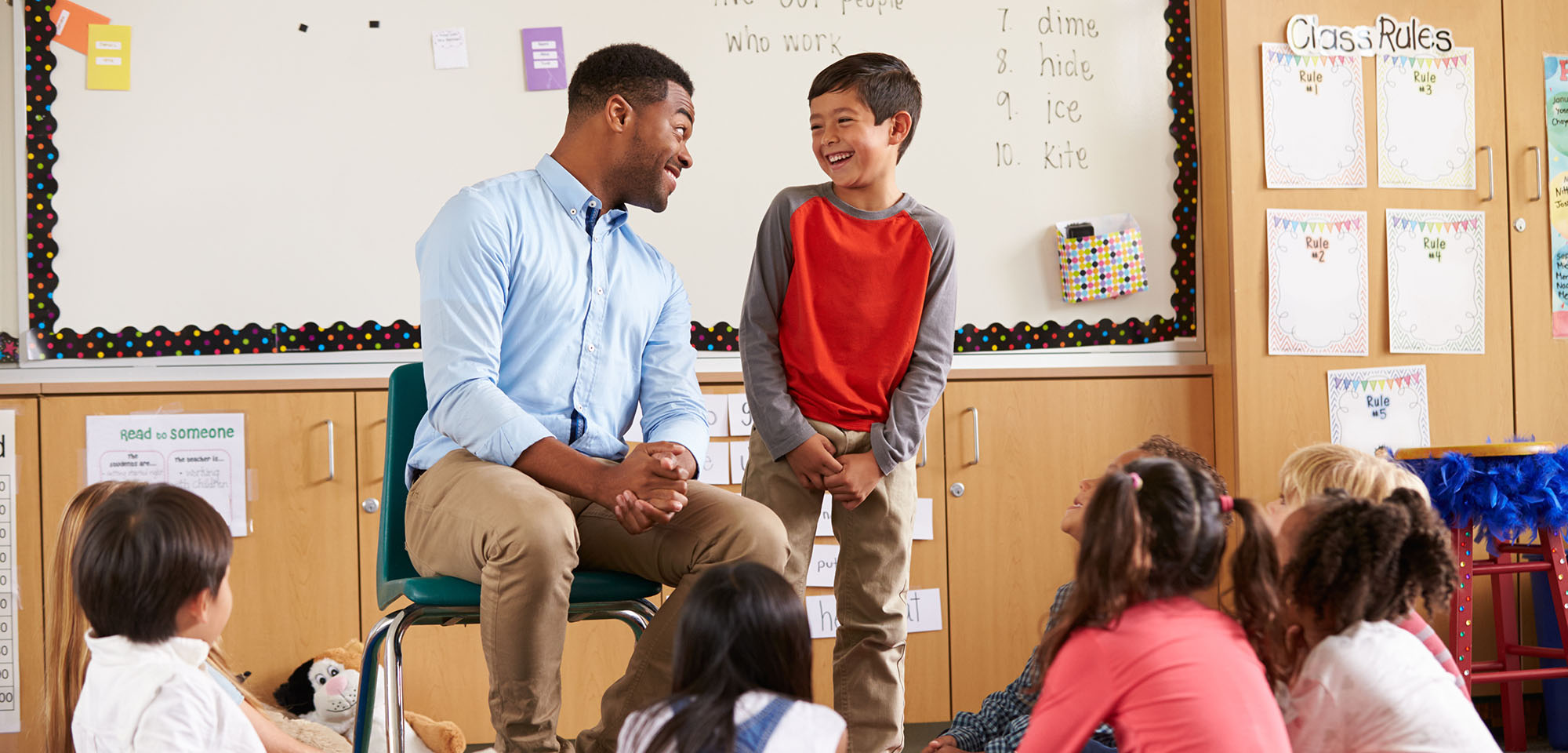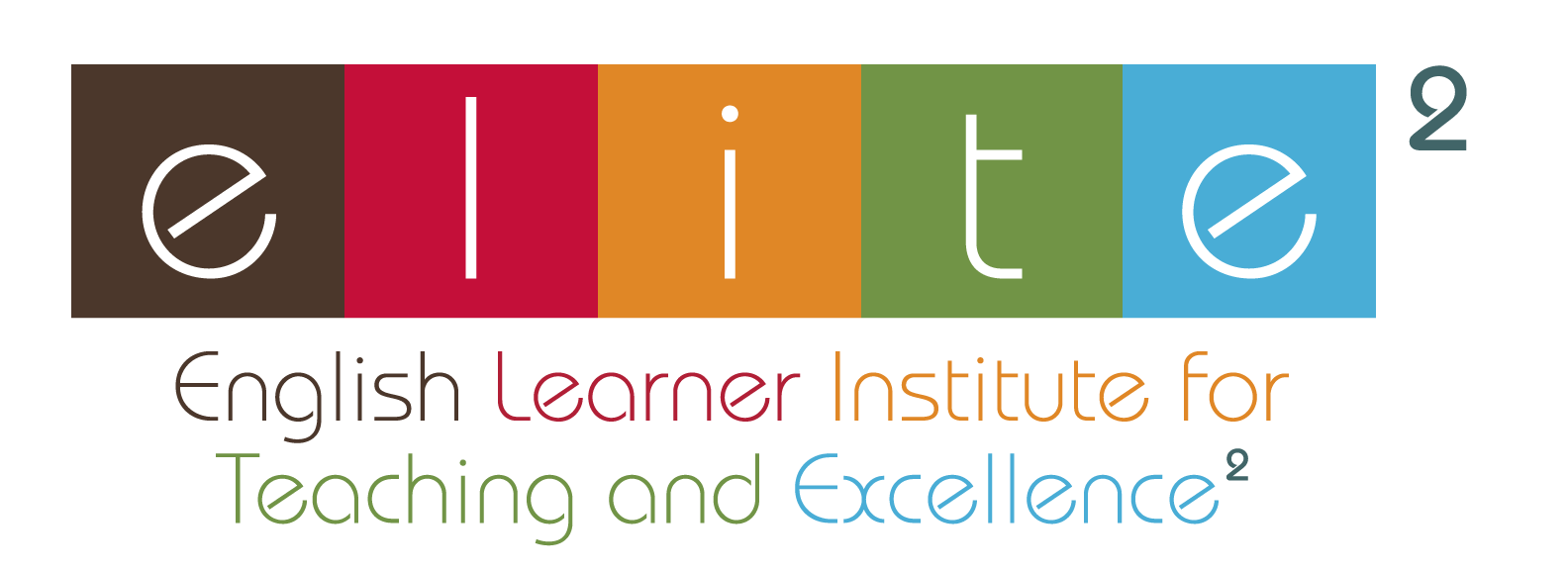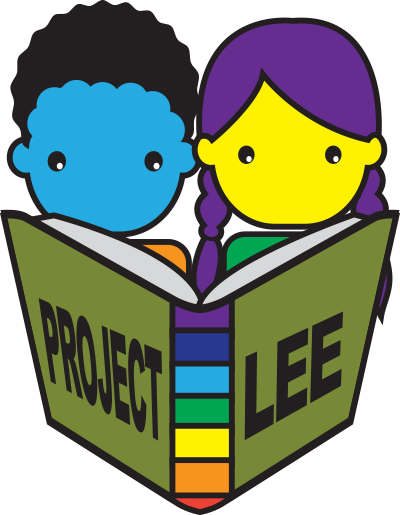
In September of 2016, OSEP funded three projects focusing on tiered approaches to improving reading and language outcomes for English Learners (ELs). These projects are developing and implementing culturally and linguistically responsive models for multitiered system of supports for ELs, including those with or at risk of having a disability.
Features of these models include:
Please click on each project to learn more about each model and to access additional resources.

Project ELITE2
The University of Texas at Austin
Principal Investigators: Dr. Greg Roberts, Dr. Leticia Grimaldo
Co-Investigators: Dr. Sharon Vaughn, Dr. Shannon Giroir
Project ELITE2 is a model demonstration project sponsored by the Office of Special Education Programs in the U.S. Department of Education. The project operates within the Language for Learning Institute of The Meadows Center for Preventing Educational Risk at The University of Texas at Austin.
The goal of the Project ELITE2 is to develop, implement, and evaluate a multitiered instructional model for English learners in the elementary grades that focuses on language and literacy development. We are one of three model demonstration sites collaborating to optimize educational outcomes for English learners, specifically those with or at risk for having a learning disability.
Through this newly funded cooperative agreement, Project ELITE2 is working with a school district in Central Texas to extend our previous work from ELs in the primary grades to ELs in grades three through five.

Project ELLIPSES
American Institutes for Research
Principal Investigator: Dr. Linda Cavazos
Consultants: Dr. Elsa Cardenas-Hagan, Dr. Alba Ortiz
Project ELLIPSES is a model demonstration project sponsored by the Office of Special Education Programs in the U.S. Department of Education. The goal of the project is to assess the implementation of multi-tiered system of supports (MTSS) focused on culturally and linguistically responsive teaching (CLRT) to meet the needs of English learners and English learners with disabilities in the area of literacy and language development. Project ELLIPSES will provide training and technical assistance to build staff capacity to support MTSSCLRT implementation and high-quality literacy instruction for English learners and English learners with disabilities in grades third through fifth.

Project LEE
Portland State University
Principal Investigator: Dr. Julie Esparza Brown
Co-Investigator: Dr. Amanda Sanford
Consultants: Dr. Sylvia Linan-Thompson, Dr. Phyllis Ault
Graduate Research Assistant: Emily Rotert
Project Lectura para Excelencia y Éxito (Project LEE) is a model demonstration project at Portland State University, sponsored by the Office of Special Education Programs in the U.S. Department of Education. The goal of Project LEE is to improve literacy and language outcomes for ELs in grades 3-5 with or at-risk for being identified with a disability. Within this context, we intend to support schools to use a framework, PLUSS (Sanford, Brown & Turner, 2012), to adapt existing evidence-based interventions for the unique linguistic and cultural needs of ELs. The PLUSS Model provides a replicable model of literacy instruction and intervention through embedding culturally and linguistically appropriate instruction into existing multi-tiered system of supports.
PLUSS stands for:
P: Preteaching language and vocabulary and priming background knowledge
L: Language use and modeling
U: Using visuals and graphic organizers
S: Systematic and explicit instruction
S: Strategic use of native language and culture
As one of three model demonstration sites, Project LEE is collaborating with other projects and the outcomes of this project will be disseminated nationally. Specifically, the goals of our project are to: (1) improve the literacy outcomes for ELs with or at-risk for being identified with a disability, and (2) create a replicable and sustainable model of culturally and linguistically responsive instruction that can be overlaid across all tiers of instructional support within a multi-tiered system of supports.